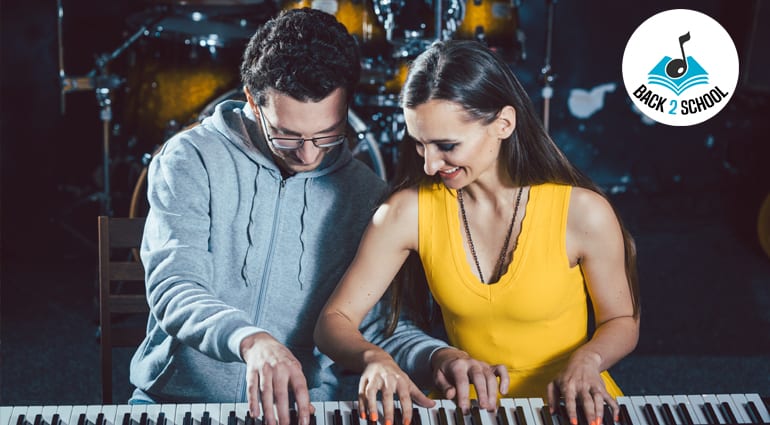
In this article you will learn what you have to pay attention to when you want to learn an instrument at an “advanced age” ? from choosing an instrument to practicing to setting your own expectations. We will also touch on what learning an instrument beyond the age of 30 brings you, personally! Some product recommendations are also included!
#BackToSchool #GearUp
1. The merits of being 30+
There is no reason why this shouldn’t work. It is undisputed that children and young people are particularly receptive. You, on the other hand, have completely different qualities. In your private and professional life you have learned to adapt. Over the years you have proven to others and yourself that there is an answer to every question and a solution to every challenge. To put it bluntly: You know that goals are achievable. Many kids don’t (yet) know that. But you have experienced this with all its ups and downs, the best prerequisites for achieving a targeted goal with determination.
2. Which instrument(s) would you like?
Which instrument should you choose? It doesn’t really matter, as long as you enjoy it and have a special attraction to it and, more importantly, the sounds it produces. You may have dreamed of playing piano, keyboard, drums or guitar in your childhood. Or you just like the sound of trumpets, horns or the emotional saxophone. Others want to recreate the memories of their last holiday and grab the bagpipes or banjo, the blues harp or the rockabilly double bass…
- Banjos
- Double Basses
- Guitars
- Saxophones
- Violins & Violas
- Trumpets
- DJ Equipment
- Drums
- Synthesizers
- Folk / World Instruments
- Harmonicas
- Keys
3. Motor function, sensory function & musical memory
Children’s fingers are more agile and sensitive, we acknowledge this without envy. Your fingers, however, are full-grown and much stronger. The same applies to the muscles of the lips and face, (i.e. the approach to wind instruments), an immense advantage over pubescent “competitors”. During practice and learning, motor skills are trained and sensory perception is activated. The playing technique is anchored step by step in the so-called muscle memory until you no longer think consciously in the decisive moment, but strike, pluck or blow intuitively. Learning the instrument becomes a physical journey of discovery.
4. Playing an instrument is good for your health
According to numerous studies, playing a musical instrument promotes memory performance. The reason for this is that new synapses are formed and existing ones are reactivated. The coordination of motor skills, hearing, body perception and emotions plays a decisive role. It has been proven that musicians think and feel more diverse and multifaceted than many other contemporaries. The secret lies in the continuous addressing of all senses. The brain wants to be busy, so why should you let it down, especially if it’s good for you?

5. Your own expectations
You may never become a virtuoso if you’re just starting now. So what!? You don’t plan on fans throwing bouquets of flowers or plush teddies at you during your future performances. It’s about practicing a fulfilling hobby, preferably with like-minded people. If you pull out the guitar or ukulele during the barbecue party to sing and play some songs with a few friends, this is simply a great experience. Who cares if a string buzzes or a chord comes out sounding wrong? There is hardly a more social language than music and you will learn to speak this language step by step as late starters.
Conclusion: You can never know if you don’t try
Don’t listen to those who try to persuade you that your brain no longer has the ability to learn something new. This is pure rubbish coming from ignorant people. We all learn in different ways and at different speeds, but we can all do it. It’s probably not your plan to conquer the huge stages at mid-life or as a senior, but who says you can’t! And if the local “pensioners band” still manages to pull off the big hits in the local club why can’t you?!

Service & Consulting
In principle, the size of the instrument must be based on the body structure and development of the person. It is therefore ideal to seek the advice of an experienced teacher or to visit our specialist departments, where our staff will help you make the right choice.
If you have any questions about instruments for children or special instruments, our specialists from all departments are always available to help and advise you – whether online or in our physical shop in Treppendorf.
If you can’t come by, please call us, use our live chat on thomann.de or send us an e-mail. ? All contact details of the departments and the respective specialists are listed under ? this link ?
Address:
Thomann Music
Hans-Thomann-Str.
96138 Burgebrach / district of Treppendorf
2 comments
Leave a Reply
You are currently viewing a placeholder content from Facebook. To access the actual content, click the button below. Please note that doing so will share data with third-party providers.
More InformationYou are currently viewing a placeholder content from Instagram. To access the actual content, click the button below. Please note that doing so will share data with third-party providers.
More InformationYou are currently viewing a placeholder content from X. To access the actual content, click the button below. Please note that doing so will share data with third-party providers.
More Information
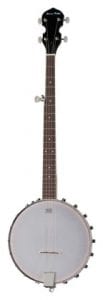
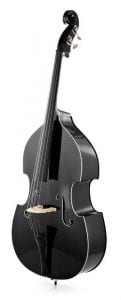

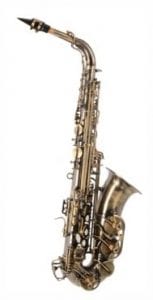
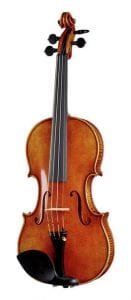
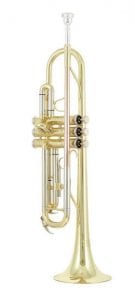

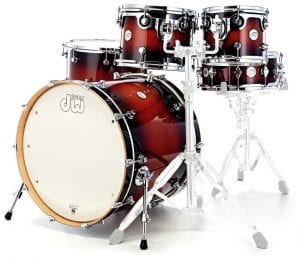
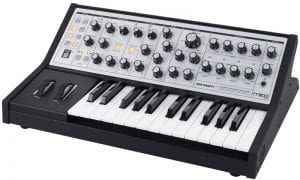

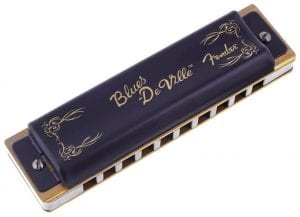




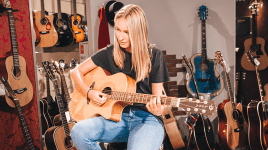




Dee says:
I Like To Work
Dee says:
Music